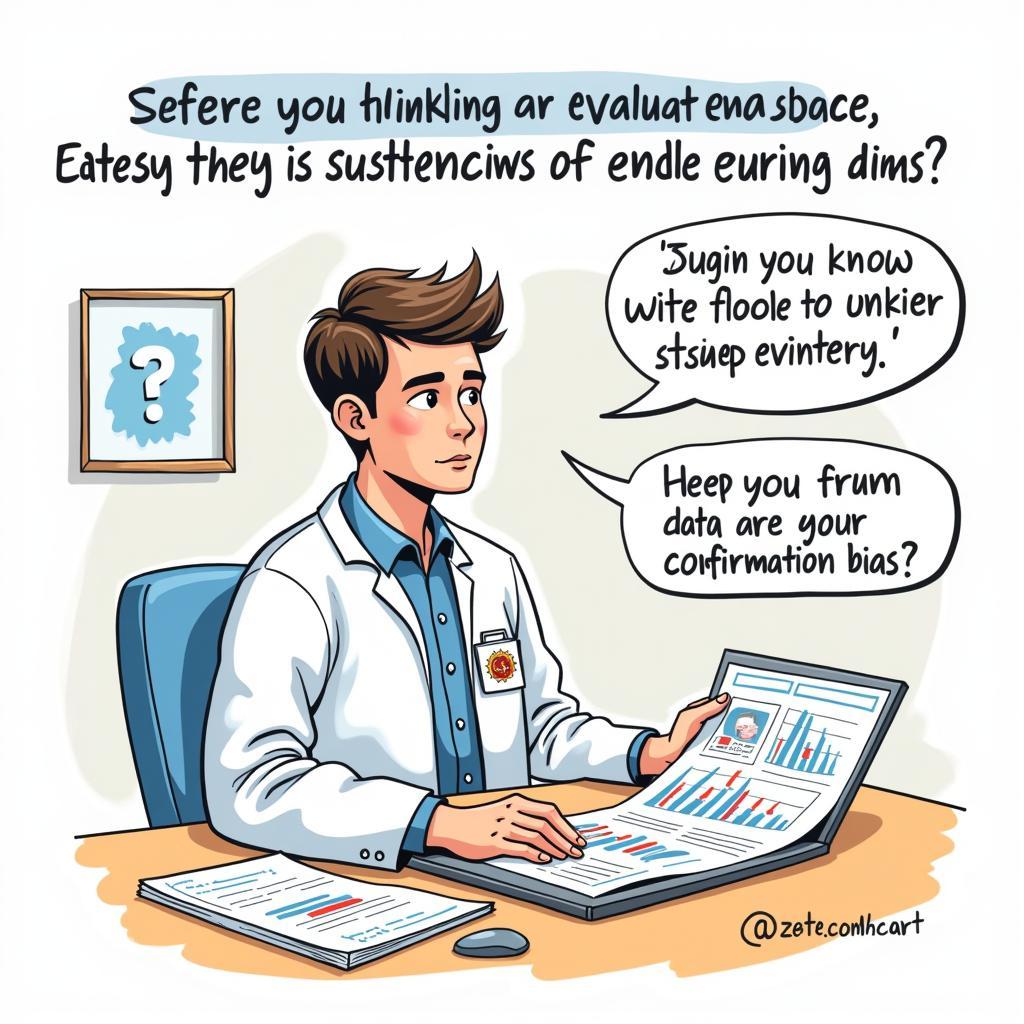Researcher Bias Psychology, a fascinating and critical aspect of any research, explores how the beliefs, expectations, and even subconscious biases of researchers can significantly impact the design, execution, and interpretation of their studies. From subtle shifts in data collection methods to overt misinterpretations of findings, understanding researcher bias is essential for ensuring the integrity and objectivity of research across all fields, particularly in the realm of paranormal research where subjectivity can easily creep in. Understanding this phenomenon is crucial for both co researchers and those seeking to evaluate the validity of research.
The Many Faces of Researcher Bias Psychology
Researcher bias can manifest in various forms, each with the potential to skew results and lead to inaccurate conclusions. Confirmation bias, for example, is the tendency to favor information that confirms pre-existing beliefs and to disregard evidence that contradicts them. This can lead researchers to selectively choose data or interpret ambiguous findings in ways that align with their expectations. Another common form, observer bias, occurs when researchers unconsciously influence the behavior of participants, leading to outcomes that reflect the researcher’s expectations rather than the true nature of the phenomenon being studied. For example, a researcher investigating EVP (Electronic Voice Phenomena) might unconsciously interpret ambiguous sounds as voices if they strongly believe that EVP are real.
Imagine a reflexive researcher investigating a haunted location. Their belief in ghosts could influence how they interpret strange noises, attributing them to paranormal activity rather than natural causes. Understanding how these biases operate is vital for developing strategies to mitigate their influence.
Mitigating the Effects of Researcher Bias
While completely eliminating researcher bias is impossible, several strategies can be employed to minimize its impact. Blinding, a technique commonly used in clinical trials, involves keeping researchers unaware of the treatment group assignments until after the data analysis is complete. This prevents researchers from unconsciously influencing the outcomes of the study. Another effective strategy is the use of standardized protocols for data collection and analysis. Clear, pre-defined criteria for recording and interpreting observations can help reduce the influence of subjective judgment.
For instance, when investigating purported poltergeist activity, research topic ideas for psychology should focus on quantifiable data, such as the number of objects moved, their weight, and the trajectory of their movement. This allows for more objective analysis and reduces the influence of personal interpretations.
Researcher Bias Psychology: The Importance of Self-Awareness
One of the most critical aspects of mitigating researcher bias is self-awareness. Researchers must be conscious of their own beliefs, assumptions, and potential biases. This involves critical self-reflection and a willingness to acknowledge how personal perspectives might influence their research. Engaging in open discussions with scientist or researcher colleagues and seeking feedback from diverse perspectives can also help identify and address potential biases.
“Acknowledging our own biases is the first step towards conducting more objective research,” says Dr. Eleanor Vance, a leading psychologist specializing in research methodology. “It requires intellectual honesty and a commitment to pursuing truth regardless of personal beliefs.”
Another expert, Dr. Michael Carter, a renowned Paranormal Researcher, adds, “In the often ambiguous world of paranormal investigation, self-awareness is paramount. We must constantly question our interpretations and remain open to alternative explanations.”
Researcher Bias: A Continuing Challenge
Researcher bias psychology presents a persistent challenge in all fields of research. While complete objectivity may remain elusive, a conscious effort to understand and mitigate the influence of bias is essential for producing credible and reliable findings. By employing rigorous methodologies, embracing self-awareness, and fostering a culture of open dialogue, researchers can strive to minimize the impact of their biases and advance our understanding of the world around us, both seen and unseen. This is particularly pertinent when looking for jobs research assistant psychology.
 Researcher Bias: Critical Thinking in Paranormal Research
Researcher Bias: Critical Thinking in Paranormal Research
Conclusion: Striving for Objectivity in Paranormal Research
Researcher bias psychology is a critical factor to consider in all research, especially in the realm of the paranormal. By understanding the various forms of bias and implementing strategies to mitigate their influence, we can strive towards greater objectivity and contribute to a more accurate understanding of the mysterious phenomena that lie beyond the veil of the ordinary. Addressing researcher bias is essential for ensuring the integrity and validity of any investigation, leading to more credible and meaningful results.
FAQ
- What is researcher bias psychology?
- What are the common types of researcher bias?
- How can researcher bias affect paranormal investigations?
- What strategies can be used to mitigate researcher bias?
- Why is self-awareness important in addressing researcher bias?
- What is the role of blinding in reducing researcher bias?
- How can standardized protocols improve research objectivity?
Need support? Contact us 24/7: Phone: 0904826292, Email: research@gmail.com or visit us at No. 31, Alley 142/7, P. Phú Viên, Bồ Đề, Long Biên, Hà Nội, Việt Nam.